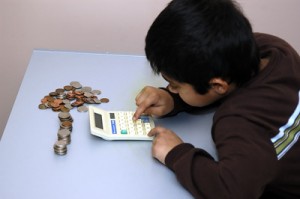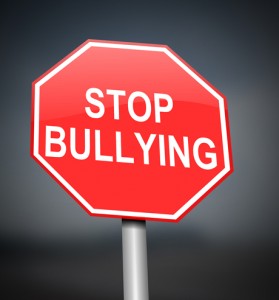By MySahana

Many South Asian parents are surprised when they find out that bullies can be South Asian. Because the culture teaches children to place value on keeping the peace and putting others before the self, it seems counter-intuitive to many that a child can be a bully. However bullies exist in every culture, South Asian included.
For parents of all cultures, finding out your child is a bully can be a shocking and hurtful realization. The sooner parents identify the signs that their child might be a bully, the sooner they can make changes in their child’s life to end the bullying behavior. Is your child a bully?
Here are the common red flags that your child might be a bully:

stock image
Aggressive tendencies. If your child shows this toward a pet or adults (like parents or teachers), it is a red flag. Aggression can be physical such as pushing, shoving or throwing or it can be verbal such as yelling, screaming or calling names.
Need to control. Children who have a strong desire to control their surroundings, situations or people around them are at high risk for being bullies. These children may have trouble following others’ rules or directions and wishing to dominate others instead.
Easily frustrated. Having a short temper or being impulsive are also risk factors for being a bully. If your child loses his/her temper, feels frustrated quickly or angers easily, this is the foundation for becoming a bully. Difficulty tolerating frustration can be observed as young as infancy.
Positive view of violence. Playing violent video games does not necessarily increase the risk or becoming a bully. However, a child’s attitude toward the violence is a bigger predictive factor. If your child seems to enjoy watching violence or thinks the violent aspects of TV or video games is “cool”, it is a red flag.
Smooth talker. Even children can talk their way out of situations. If a child is especially good at it for his age, combined with other risk factors, can be a sign that he/she is a bully.
Shows little remorse. When we hurt others, most of us feel intensely guilty for our actions. This is evident from the second year of life. For some children, they lose this ability or never develop it and when they see others hurt, they do not feel remorseful. Instead they may laugh at the others’ pain or shrug it off, seemingly unaffected.
If your child is showing signs of being a bully, you should step in as soon as you can to diffuse the situation. Keep open communication with your child and teach him/her appropriate behavior. Stay in contact with your child’s teacher and other adults (such as coaches, etc.) to obtain regular feedback. If you are not sure where to begin, child counselors can help advise you on how you can help as a parent.
What are other red flags that might indicate a child is a bully?
This post was first pubilshed on MySahana here.


There are no comments
Add yours